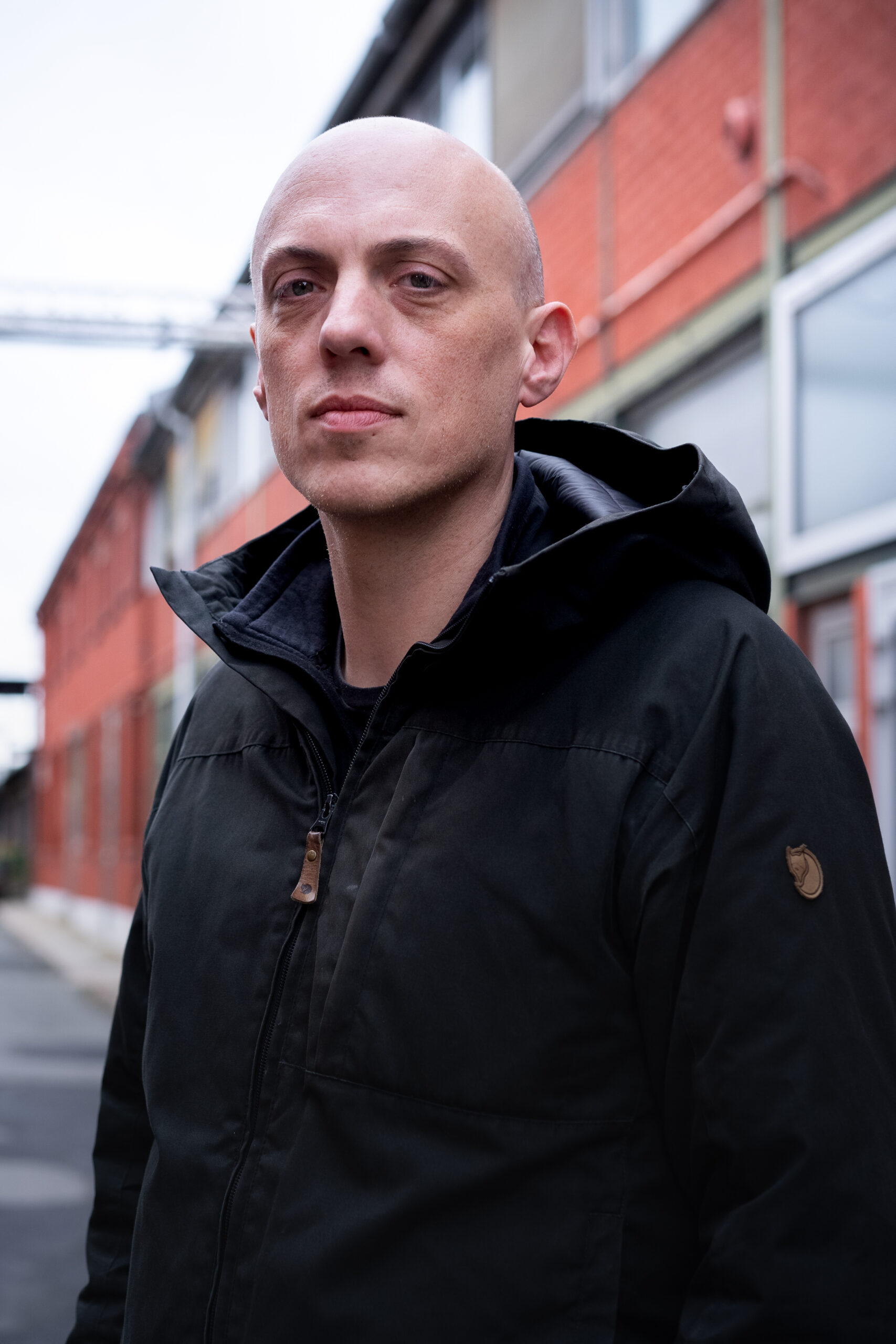About
Like the classicist artists, Olivier Caron stages photorealistic characters in skilfully composed and lit interiors, creating an impression of the strange. These intriguing archetypes of an outdated social category move within timeless settings full of dystopian objects. These portraits question the notions of domination and enslavement, freedom and imprisonment.
Works
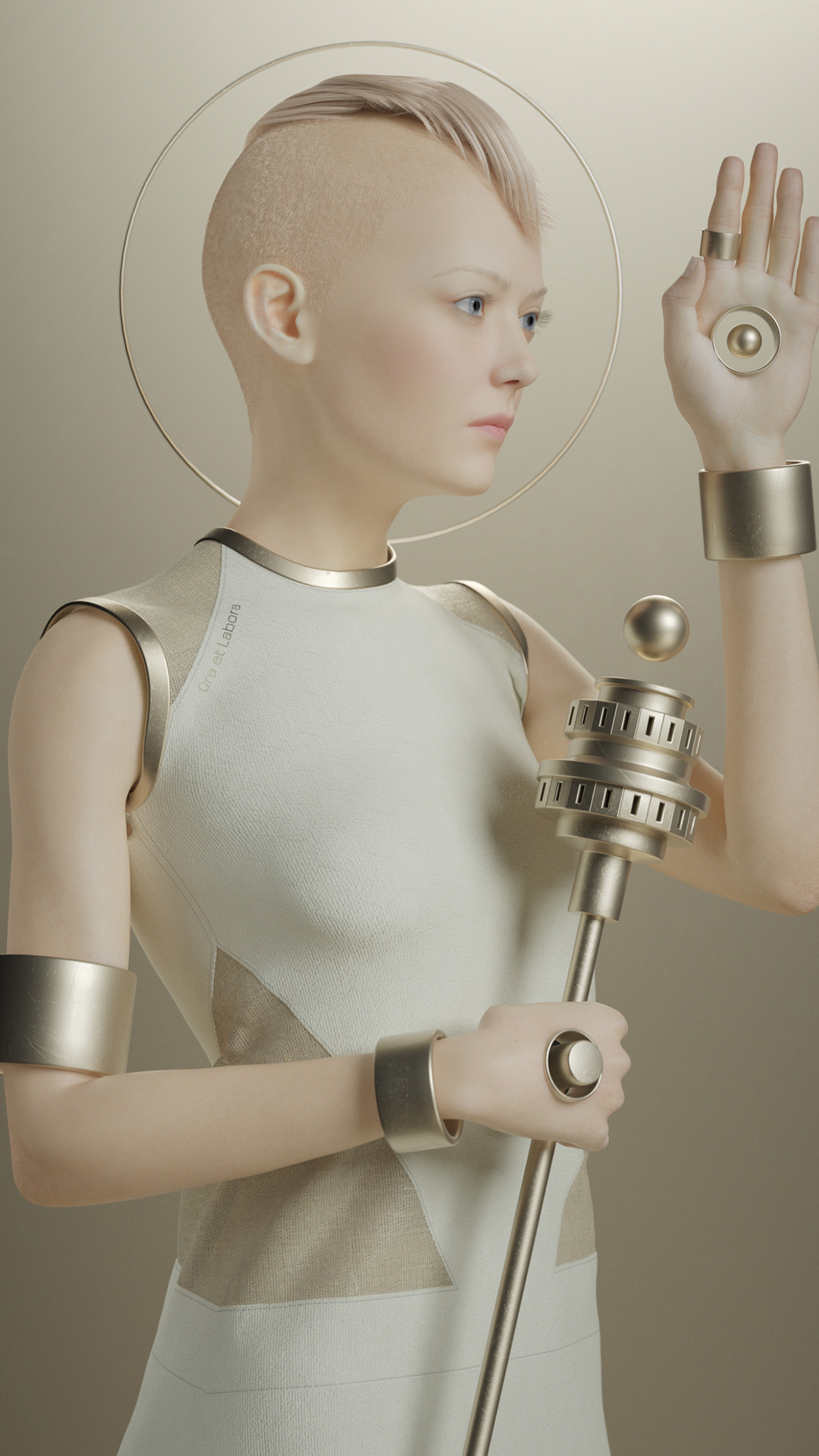
Unidentified Saint (I)
OLIVIER CARON
Unidentified Saint (I) is a saint from the future, who belongs to a world in which work is the only god. Its stigmata are
those of an unknown machine. In this piece, Olivier Caron explores the iconographic codes of Christian ideology.
Girl with Apple
The Old Guard
The Receptionist
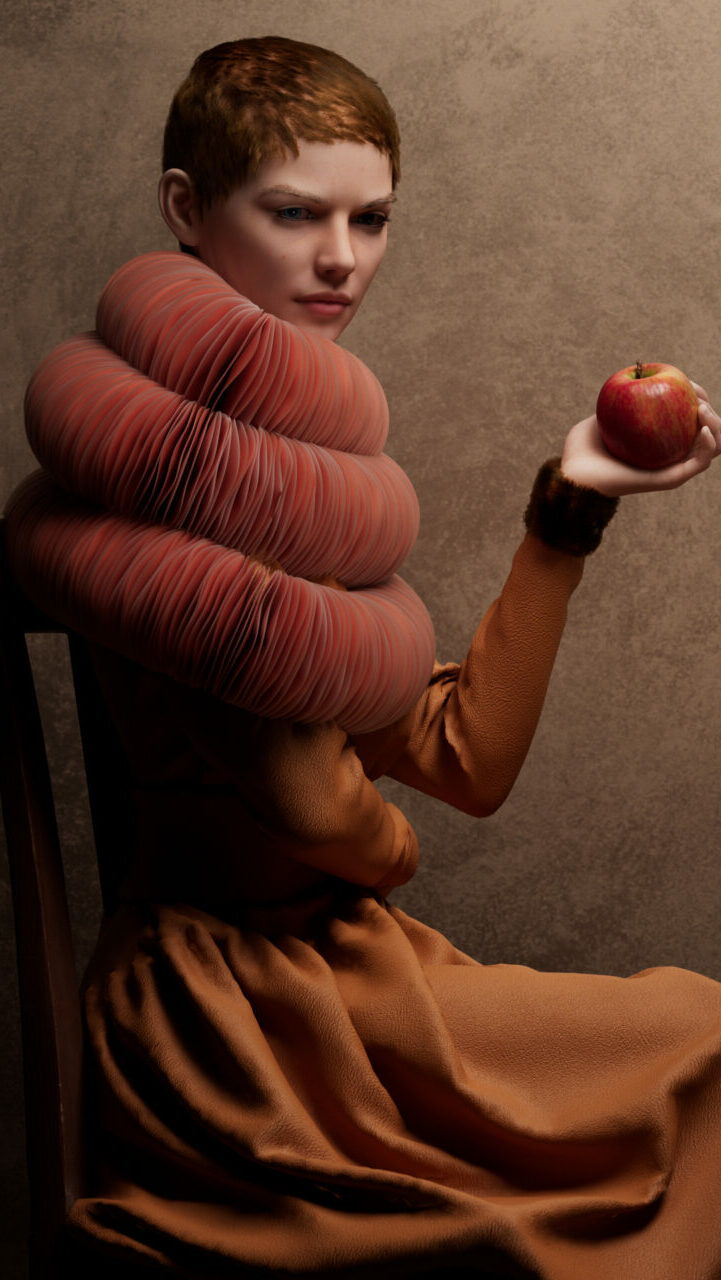
GIRL WITH APPLE
OLIVIER CARON
"Girl With Apple" is part of a personal reflection on the plant kingdom and the relationship we have with it, materially and spiritually. Although common, the apple is also extremely symbolic as it is believed to represent the forbidden fruit of the Garden of Eden, both knowledge and farewell to innocence. In this image, I wanted to represent this passage in a positive way, to show a woman not subject to a tyrannical God but in charge of her own destiny.
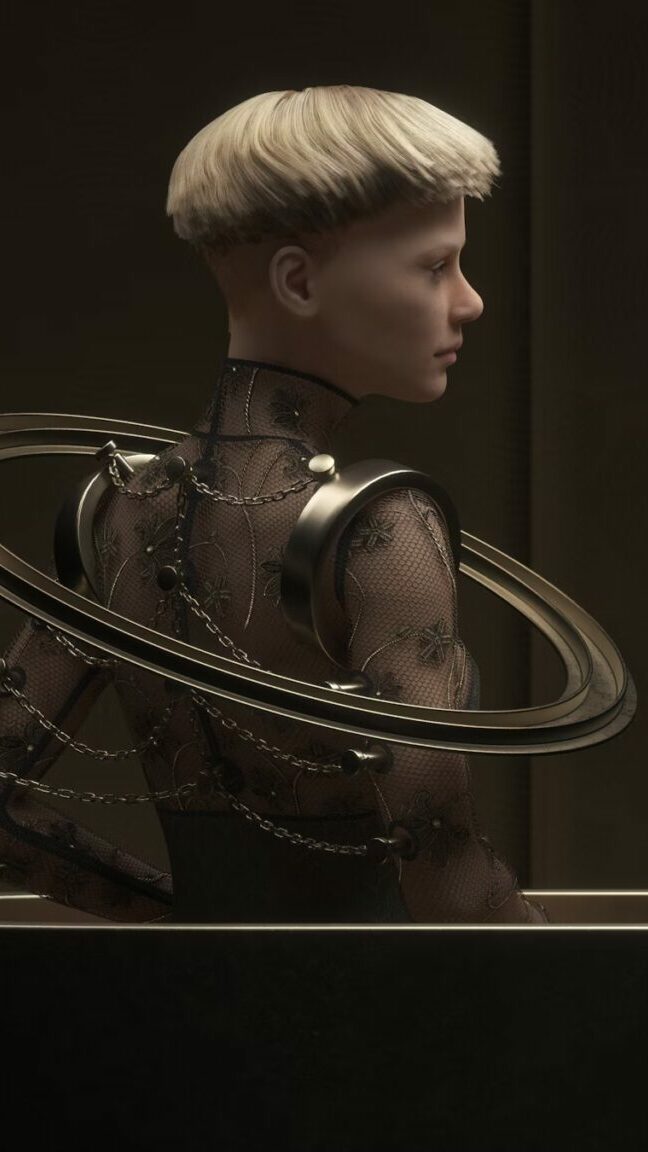
The Receptionist
OLIVIER CARON
I like to place my characters in a function that defines them and from which they try to escape. For this image, I had in mind those receptionists in hotels or receptions whose only purpose is to present a pleasant face that erases all their personality. Here, the receptionist is surrounded by several structures that constrain her, but her gaze is far away. Even in a rigid universe, there's the memory of an outside world, the idea of an escape.
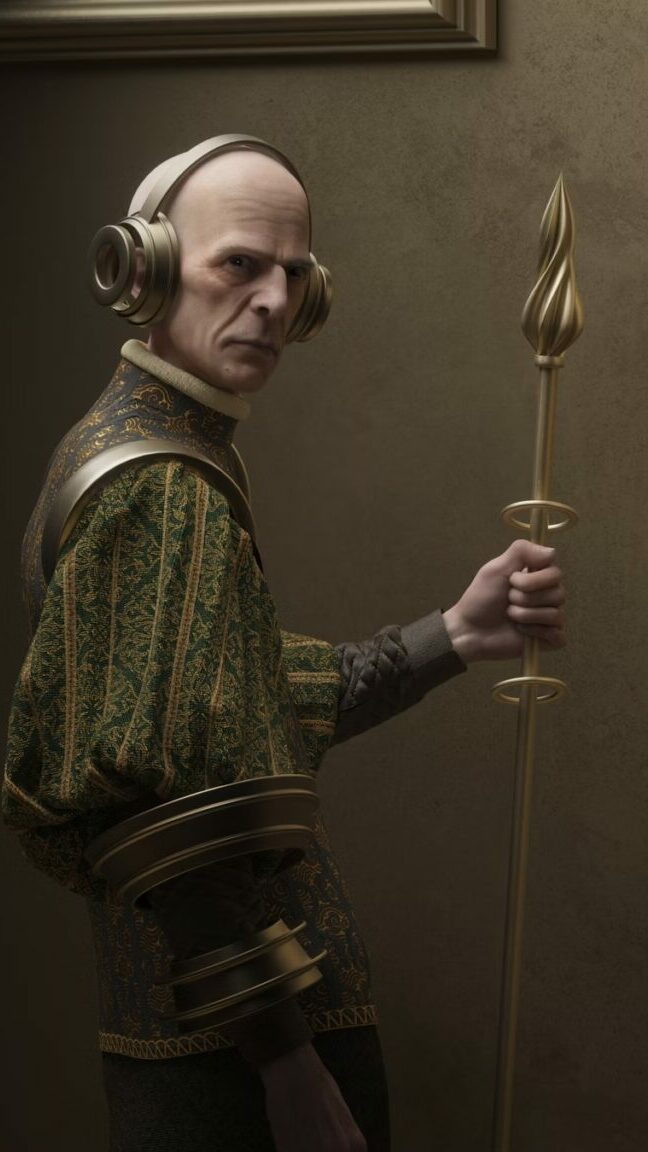
The Old Guard
OLIVIER CARON
"The Old Guard" is part of my "No One Leaves" series, based on various portraits of an aristocratic house set in an uncertain time. I like to mix different eras in my images and it's particularly visible here. This guard is a remnant of a vanished world in the midst of an already outdated modernity. Is this a purely symbolic function or does he still pose a threat? Above all, he is the guardian of an order, of a civilization whose influence continues to spread long after his death. The past is never completely gone, it only transmutes into the present, giving rise to new forms.

